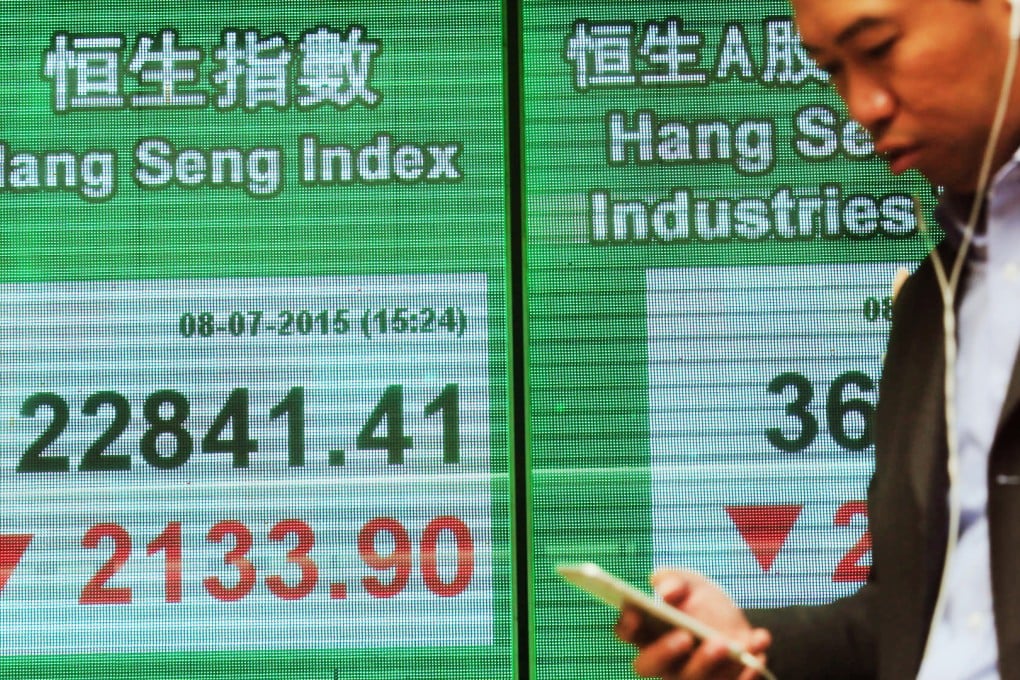Update | Chinese markets routed as 51pc of A-shares in Shanghai and Shenzhen suspend trading; Hong Kong plunges
In unprecedented move, 1,429 or 51 per cent of all stocks listed in the Shanghai and Shenzhen exchanges voluntarily suspend trading of their stocks. Shanghai closes at 3-1/2 month low and Hong Kong falls over 2,100 points

Mainland Chinese stocks bled a sea of red ink to finish on Wednesday at a 3-1/2 month low due to panic selling sparked by an unprecedented 51 per cent of all listed shares now in voluntary suspension from trade, locking up some US$2.2 trillion of previously tradeable market capitalisation.
The carnage spilled into Hong Kong, where the Hang Seng index plunged over 2,100 points before bargain hunting clawed back the losses.
Hong Kong had its biggest single-day decline since October 2008 as foreign investors dumped Chinese shares amid fears about the mainland financial system following a 30 per cent free-fall in mainland stocks in less than a month.
The benchmark Shanghai Composite Index lost 5.9 per cent, or 219.93 points, to close at 3,507.19.
It was the lowest settlement for Shanghai since March 17. Since scaling a 7-year peak by ending at 5,166.35 on June 12, the market has tanked 1,659.16 points or 32.11 per cent in value.
The benchmark Hang Seng Index lost 5.84 per cent, or 1,458.75 points, to settle at 23,516.56, the biggest single-day fall since October 27, 2008 when Hong Kong stocks joined the rest of the world in diving at the height of the global financial crisis.